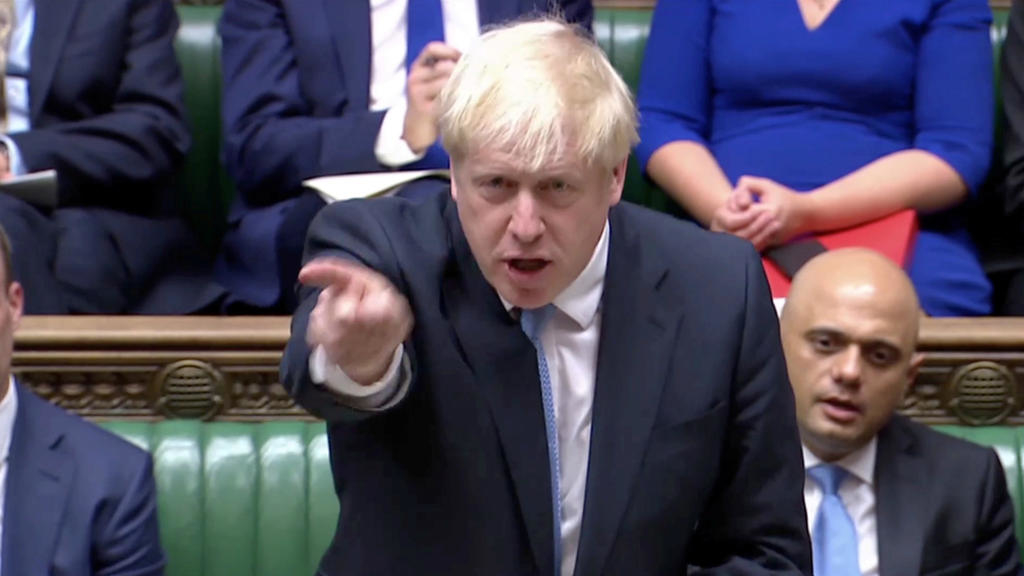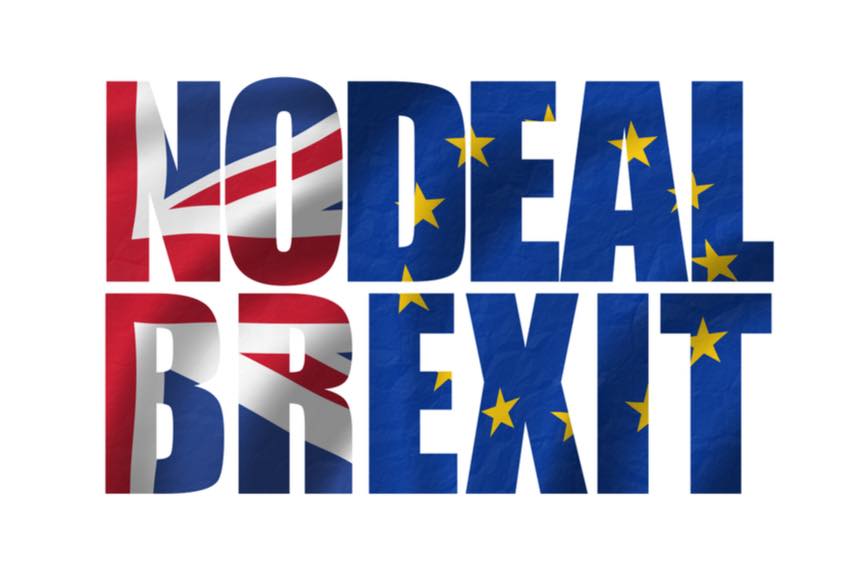
On 24 July 2019 Boris Johnson entered 10 Downing Street on the heels of an emphatic promise – to deliver Brexit on 31 October 2019 with or without a deal, ‘no ifs, no buts’.
Unsurprisingly, Mr Johnson’s resolute insistence on the removal of the Irish backstop arrangements from the Draft Withdrawal Agreement has beckoned an unyielding response from the EU, increasing the likelihood of a no deal Brexit.
With less than nine weeks until the expected departure date, we look at how a no-deal Brexit will affect UK employers of EU citizens and their family members.
The EU Settlement Scheme (EUSS)
In order to give structure to the onerous process of documenting the millions of EEA nationals working in the UK, the Home Office has introduced new Immigration Rules under which EEA/Swiss nationals and their family members can apply for limited leave to remain for a period of five years (pre-settled status) or indefinite leave to remain (settled status) if they have already completed five years of continuous qualifying residence in the UK.
The EUSS currently presumes that a deal will be reached, and as such the relevant cut-off dates and Immigration Rules are aligned (with some limited exceptions) with the current Draft Withdrawal Agreement. Under the EUSS in its current form, EEA/Swiss nationals and their family members who arrived in the UK on or before the ‘cut-off date’ (currently 31 December 2020) will have until 30 June 2021 to apply for pre-settled or settled status under the EUSS. In the event of a no-deal, these timescales are likely to be brought forward to 31 October 2019 as the new cut-off date and 31 December 2020 as the deadline for EEA/Swiss nationals and their family members to apply under the scheme.
Statistics published by the Home Office last week indicate over 1 million EEA/Swiss nationals and their family members in the UK have granted pre-settled or settled status since the scheme’s public roll out on 30 March 2019. This number could rise sharply when the identity checking mobile app is made available to iOS users which is expected by the end of this year.
For more information about the EUSS, read our latest update here.

The current position
Until Brexit actually happens EU law continues to have effect in the UK. Under free movement provisions EEA/Swiss nationals and their family members may travel to and live in the UK and acquire permanent residence (PR) after five years of continuous residence and specified activity in the UK.
EEA/Swiss nationals and their qualifying family members may apply for documentation which confirms their residence or permanent residence under free movement rules, but are not required to do so. While many EEA/Swiss nationals would prefer to apply under the EUSS because of the relative ease and speed of the application process, documentation issued under free movement rules may be necessary in cases where for example an applicant wishes to naturalise straightaway (in the event that they have already acquired permanent residence at least 12 months prior to the naturalisation application) or in cases of unmarried partners where a family permit under free movement rules is required before the non-EEA/Swiss partner can make an application for status under the EUSS.
It may also be necessary for individuals to be able to prove their status in the UK for other purposes such as travel in and out of the UK, evidencing right to work in the UK, opening a bank account or renting a property which may necessitate an application under free movement rules, rather than the EUSS. In most cases however, individuals would be advised to apply under the EUSS, especially those who have not yet reached five-year residence in the UK and are unlikely to do so by the EUSS deadline (31 December 2020 or 30 June 2021, depending on whether the UK leaves with or without a Brexit deal).
Dual citizenship
Some EU states, eg Germany, Belgium and The Netherlands only permit their citizens to hold dual nationality with other EEA countries. Provided that nationals of these countries can obtain a document evidencing their acquisition of permanent residence (PR) under existing EU laws, and they have spent at least 12 months in the UK since acquiring PR, they may still be able to apply to naturalise as British citizens before the UK is due to leave the EU on 31 October 2019.
What happens in a no deal scenario?
In the event that the UK leaves the EU without a deal:
- free movement will end on the withdrawal date (currently set for Thursday 31 October 2019). It is currently unclear what will replace it in a no-deal scenario, after the Home Secretary hinted in a statement last week that previously drawn up plans to allow EEA/Swiss nationals to continue to come to the UK for the purposes of work and to be allowed a three-year permission to do so (so-called ‘European Temporary Leave to Remain’ scheme), may be abandoned in favour of a more hard-line approach;
- the ‘cut-off date’ for EEA/Swiss nationals to be resident in the UK for the purpose of qualifying for the EUSS will be brought forward to the date of withdrawal (currently set for 31 October 2019);
- the deadline for applying for status under the EUSS would be advanced to 31 December 2020; and
- EEA/Swiss nationals arriving in the UK after the cut-off date are unlikely to be classified as settled workers and employers are likely going to be required to treat them as non-settled workers with limited permission to reside in the UK for the purpose of verifying, recording and re-checking their right to work in the UK (further information to follow as soon as the Government makes further announcements).
Potential no-deal Brexit border issues
It remains to be seen which mechanisms will be put into place to address swifter border checks to avoid delays, differentiation of pre-withdrawal EEA/Swiss national residents in the UK from those arriving for the first time after the cut-off date, or indeed whether elements of the intended new immigration system will be accelerated to cover EEA/Swiss nationals and their family members from the point of Withdrawal, as opposed to January 2021.
For further information on the implications of a no-deal Brexit, read our update here.
How to prepare for no-deal
Employers should think about how the rapid changes to the status of EEA/Swiss nationals and their family members in the UK in the event of no-deal could impact their workforce and practices. As a starting point, employer preparations for no-deal Brexit should include:
- bringing forward recruitment plans for any EEA/Swiss national workers (or their family members) where they are joining the business from outside the UK, with the aim that their initial entry/ residence will precede the cut-off date to be eligible for EUSS status;
- re-categorisation of settled workers into more granular categories to facilitate appropriate document checks and communications in anticipation of the UK ceasing to be part of the EU eg creating separate record groups for EEA/Swiss nationals, family members of EEA/Swiss nationals, British citizens, individuals with an entitlement to the right of abode in the UK, etc; and
- keeping informed understanding the options for EEA/Swiss and their family members to secure their rights in the UK post-Brexit;
- supporting affected employees in applying for documentation, by arranging internal and external support; and
- seeking advice on and training relevant staff with the new online right to work check procedures and status checks for employees with EUSS status.
Other steps and changes to existing systems may be appropriate depending on the size and composition of the workforce and nature of the business in question.
How we can help
Laura Devine Immigration’s award-winning team of experienced lawyers can help businesses and individuals navigate the changes ahead as the UK prepares to withdraw from the EU. From intelligent and thoughtful advice and representation during the application process to strategic pre- and post-Brexit immigration planning, Laura Devine Immigration is here to assist you.
For further information on our Brexit services and the potential implications of the UK’s withdrawal from the EU for employers and EEA/Swiss nationals, please contact your assigned lawyer or email EUenquiries@lauradevine.com.

[…] Read the full article in The UK Newspaper here. […]